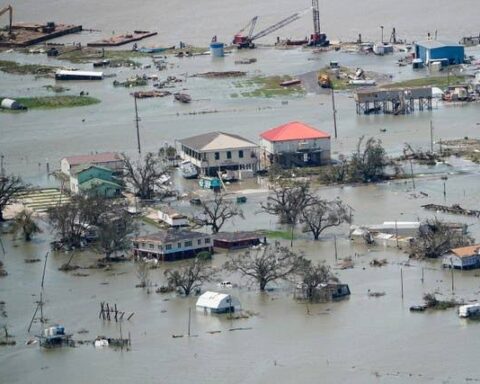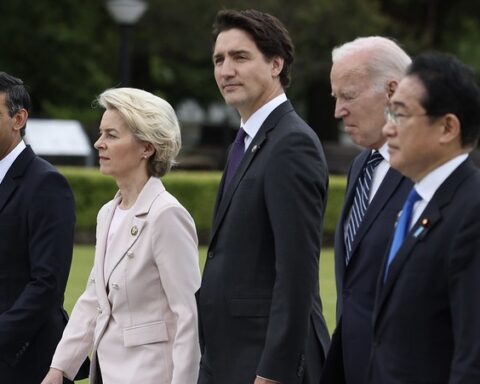The recently concluded COP28 in Dubai marked a historic turning point in the global commitment to combating climate change.
Representatives from almost 200 countries reached a groundbreaking agreement to commence the reduction of global fossil fuel consumption.
This unprecedented accord, a first-of-its-kind, signifies a paradigm shift that could herald the eventual end of the oil age.
This paper examines the implications of this pivotal agreement and evaluates the potential of COP28 to provide sustainable solutions to climate change.
Fossil Fuel Reduction Agreement: A Milestone in Climate Action
The cornerstone of COP28’s significance lies in the collective commitment to reducing global consumption of fossil fuels.
This agreement acknowledges the urgent need to address the environmental ramifications of fossil fuel usage and represents a crucial step towards mitigating the worst effects of climate change.
The unprecedented nature of this accord underscores a growing global consensus on the imperative to transition away from traditional energy sources.
Challenges in Implementation:
While the fossil fuel reduction agreement sets a commendable precedent, challenges loom in its practical implementation.
The global economy has long been intertwined with fossil fuels, posing intricate challenges in restructuring energy systems and transitioning to sustainable alternatives.
Nations heavily dependent on oil revenues face economic uncertainties, necessitating careful planning and international support to ensure a just and equitable transition.
Opportunities for Renewable Energy Expansion:
COP28’s emphasis on reducing fossil fuel consumption creates a fertile ground for the accelerated expansion of renewable energy sources. The transition to sustainable alternatives such as solar, wind, and hydroelectric power gains momentum as nations seek to diversify their energy portfolios.
This presents an unprecedented opportunity for investment in renewable technologies, fostering innovation and creating a more resilient and environmentally friendly energy landscape.
Global Cooperation and Partnerships:
The success of COP28 in proffering sustainable solutions hinges on fostering global cooperation and partnerships.
The agreement sets the stage for collaborative efforts to share technology, expertise, and financial resources among nations. Developed countries, in particular, are called upon to support developing nations in their transition to cleaner energy sources, fostering a collective approach to address the global climate crisis.
Impact on Climate Resilience and Adaptation:
COP28’s focus on reducing fossil fuel consumption is inherently linked to enhancing climate resilience and adaptation strategies.
By curbing the primary driver of climate change, nations are poised to mitigate the severity of its impacts.
This agreement aligns with the broader goal of achieving climate resilience, ensuring that communities are better equipped to withstand the inevitable consequences of a changing climate.
Potential Implications for the End of the Oil Age:
The acknowledgement at COP28 of the need to reduce global reliance on fossil fuels raises questions about the future of the oil age.
While the agreement does not signify an immediate cessation of oil usage, it serves as a pivotal step towards a gradual transition. Nations are compelled to reconsider their energy policies, driving investment and innovation in alternative energy sources and signaling a transformative shift towards a more sustainable energy landscape.
Conclusion:
COP28’s historic agreement to reduce global consumption of fossil fuels holds the potential to proffer sustainable solutions to climate change.
The commitment of nearly 200 nations marks a collective understanding of the urgent need to address the environmental consequences of traditional energy sources.
Both climate finance and climate adaptation were sidelined in the final text, a huge problem on both moral and practical grounds, and the newly established loss and damage facility remains scantily funded.
Unless poor countries get the money needed to go green, their future fossil fuel emissions will worsen climate impacts that endanger rich and poor alike.
Without many billions of additional dollars to help vulnerable communities boost their resilience to the extreme heat, storms, drought, and rising seas that rich countries’ emissions have caused, countless people will suffer and die.
While challenges persist, the agreement signals a decisive step towards a more sustainable and resilient future.
As the world navigates this critical juncture, COP28 sets the stage for increased investment in renewable energy, global cooperation, and a paradigm shift towards a world less dependent on fossil fuels.
Only time will reveal the true impact of this landmark agreement, but the momentum generated at COP28 provides hope for a more sustainable and environmentally conscious future.
By Dare Akogun








